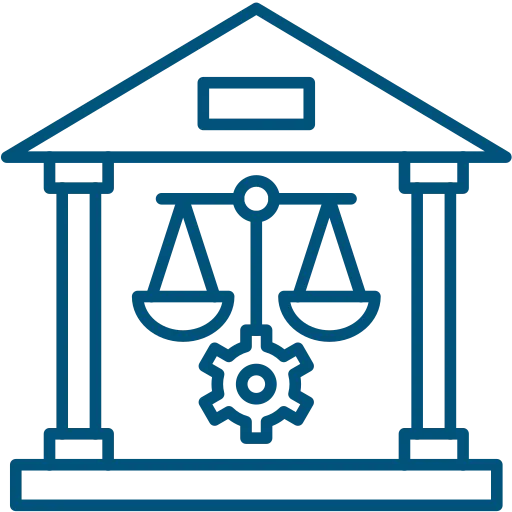Leaders in Telemarketing Compliance
and Regulatory Defense
Since 1995
Practice Areas
Comprehensive Legal Services Tailored to the Telemarketing Industry

Telemarketing Compliance
Ensure your business stays current with the latest telemarketing laws and regulations. We handle state licensing throughout the U.S. and advise clients regarding both the TCPA and the TSR - keeping your operations compliant and thriving across all state and federal jurisdictions applicable to your business.

TCPA and Class Action Defense
Whether dealing with informal demand letters or formal actions, we counsel clients facing individual or class action claims and can assist with matters in state and federal courts nationwide.

FTC and Regulatory Defense
Facing a government investigation or enforcement action? We defend businesses against FTC, CFPB, and state AG claims, protecting your rights and navigating complex regulatory proceedings effectively.

White Collar Criminal Defense
Our experienced team offers strategic defense in wire fraud, mail fraud, telemarketing cases, and grand jury proceedings for high-stakes state and federal prosecutions.

Cove Law, P.A. is a nationally recognized law firm dedicated to guiding businesses in the telemarketing industry through today’s complex regulatory landscape. With over 30 years+ of experience, we provide strategic counsel on compliance, regulatory defense, and white collar matters. Led by former prosecutor Andrew Cove, our firm combines deep legal insight with a proactive approach to help clients avoid costly investigations and resolve enforcement actions. From call centers to lead generators, we’ve successfully represented a wide range of clients across the U.S., Canada, and beyond.
Practice Areas
Comprehensive Legal Services Tailored to the Telemarketing Industry

Telemarketing Compliance
Ensure your business stays current with the latest telemarketing laws and regulations. We handle state licensing throughout the U.S. and advise clients regarding both the TCPA and the TSR - keeping your operations compliant and thriving across all state and federal jurisdictions applicable to your business.

TCPA and Class Action Defense
Whether dealing with informal demand letters or formal actions, we counsel clients facing individual or class action claims and can assist with matters in all state and federal courts nationwide..

Regulatory Defence
Facing a government investigation or enforcement action? We confidently defend businesses against FTC, CFPB, and state AG claims, protecting your rights and navigating complex regulatory proceedings effectively.

White Collar Criminal Defense
Facing fraud or criminal charges? Our experienced team offers strategic defense in wire fraud, mail fraud, telemarketing cases, and grand jury proceedings for high-stakes state and federal prosecutions.
Right by your side.
We know the challenges are not insurmountable because we've dealt with them...

Cove Law, P.A. specializes in telemarketing compliance, regulatory defense, and white collar criminal defense. The firm helps businesses navigate state and federal telemarketing laws, including the TSR, TCPA, and Do-Not-Call regulations, while ensuring proper licensing and operational compliance. Cove Law also defends clients against investigations and enforcement actions from agencies such as the FTC, CFPB, and state Attorneys General. In white collar matters, the firm represents individuals and businesses facing criminal charges, fraud allegations, and international legal issues, offering experienced, strategic defense at every stage.
What Our Clients Are Saying About Us

Maurice Verrelli
I have found Andrew to be highly personable expert in his field. He is always on top of his game. Don’t let his kind demeanor deceive you, he is fighter and that is exactly what you want from an attorney. Andrew wants to win for you ! I highly recommend him.

Vidal Cortijo
I met Andrew more than 15 years ago as a staffer in the offices of Florida’s Division of Consumer Services the enforcer of the State’s legislated Seller of Travel and Telemarketing Acts – It was his thoroughness.

Doug Kaplan
I have used Andrew and his law suit many times from 1998-2005. I would highly suggest working with him; he is one of the most knowledgeable attornies in his field. His firm is one of the bests in regard to the Telemarketing Sales Rule, and different state and federal regulations when marketing a product.

Shawn Jacobs, ND.A, CH
I worked with andrew on various different projects of mine, and he has always provided me phenomenal service from start to finish. From his very in depth knowledge, to his integrity and professionalism, I highly recommend him !!!!
Contact Us
Let’s schedule a consultation to explore your options for the issues or challenges you face.
If you have any questions, or would like to schedule a consultation, please contact us.


Address:
1300 SE 4th Avenue, #1
Fort Lauderdale, Florida
33316
Disclaimer: The information you obtain at this site is not, nor is it intended to be, legal advice. You should consult an attorney for advice regarding your individual situation. We invite you to contact us and welcome your calls, letters, and electronic mail. Contacting us does not create an attorney-client relationship. Please do not send any confidential information to us until such time as an attorney-client relationship has been established. Click here for full disclaimer
